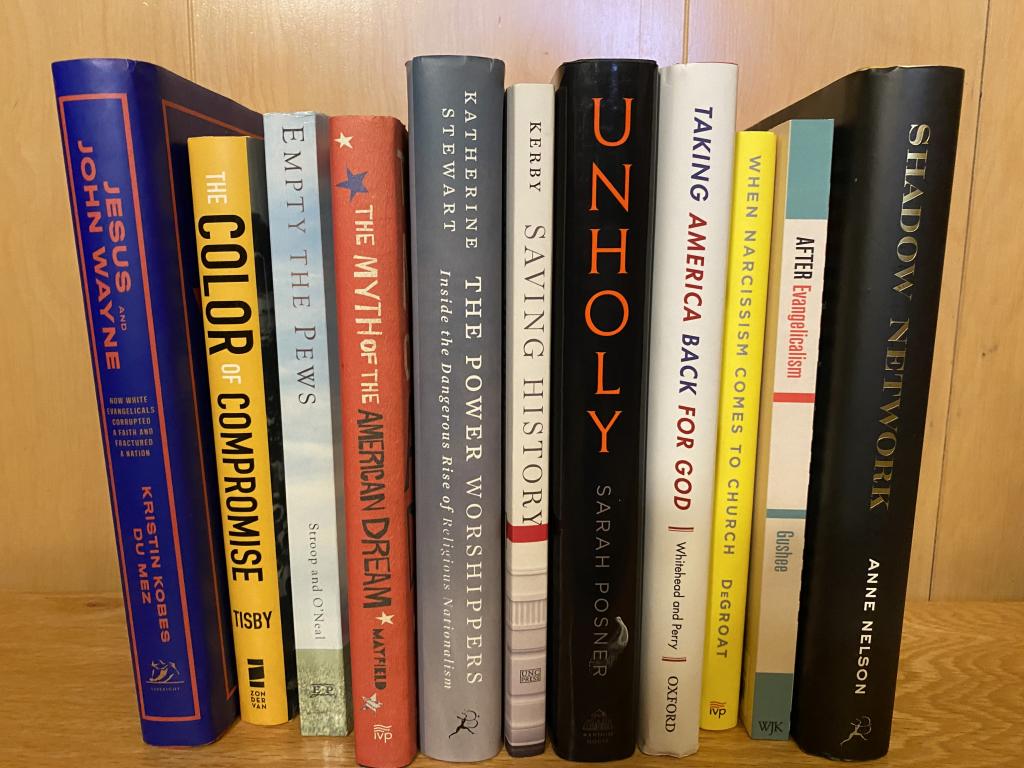

Hardcover: 288 pages
Publisher: Oxford University Press
Language: English
ISBN-10: 0190205644
ISBN-13: 978-0190205645
“thoroughly masterful work of feminist theology”
— Darcy Metcalfe, Christian Feminism Today
A New Gospel for Women tells the story of Katharine Bushnell (1855-1946), author of God’s Word to Women, one of the most innovative and comprehensive feminist theologies ever written. An internationally-known social reformer and women’s rights activist, Bushnell rose to prominence through her highly publicized campaigns against prostitution and the trafficking of women in America, in colonial India, and throughout East Asia. In each of these cases, the intrepid reformer struggled to come to terms with the fact that it was Christian men who were guilty of committing acts of appalling cruelty against women. Ultimately, Bushnell concluded that Christianity itself – or rather, the patriarchal distortion of true Christianity – must be to blame.
A work of history, biography, and historical theology, Kristin Kobes DuMez’s book provides a vivid account of Bushnell’s life. It maps a concise introduction to her fascinating theology, revealing, for example, Bushnell’s belief that gender bias tainted both the King James and the Revised Versions of the English Bible. As Du Mez demonstrates, Bushnell insisted that God created women to be strong and independent, that Adam, not Eve, bore responsibility for the Fall, and that it was through Christ, “the great emancipator of women,” that women would achieve spiritual and social redemption.
A New Gospel for Women restores Bushnell to her rightful place in history. It illuminates the dynamic and often thorny relationship between faith and feminism in modern America by mapping Bushnell’s story and her subsequent disappearance from the historical record. Most pointedly, the book reveals the challenges confronting Christian feminists today who wish to construct a sexual ethic that is both Christian and feminist, one rooted not in the Victorian era, but rather one suited to the modern world.
Introduction
1. A Paradise for Women
2. Virtue, Vice, and Victorian Women
3. Heathen Slaves, Christian Rulers
4. The Crime is the Fruit of the Theology
5. Leaving Eden
6. Redeeming Eve
7. Liberal Conservatives
8. A Prophet without Honor
Conclusion: The Challenge of Christian Feminism
“This is the book many of us have been waiting for, a top-notch biography of the inimitable Kate Bushnell. DuMez provides a thoroughly compelling portrait of a woman both ahead of and behind her times, whose accomplishments-and subsequent obscurity-tell us much about the long and vexed relationship between conservative religion and modern feminism.”
— Margaret Bendroth
Executive Director, Congregational Library
“In this dazzling hybrid of history, biography, and theology, Kristin DuMez rekindles our interest in a path-breaking woman — Katharine Bushnell — whose sprawling work on behalf of Christian feminism spanned decades, traversed boundaries, shattered categories, and covered the globe. With judiciousness and a lively pen, DuMez makes it perfectly clear why this crusading reformer, written off or forgotten as a product of an antiquated Victorian past, must be re-centered in our histories and current renderings of modern Christianity and of modern America itself.”
— Darren Dochuk
Author of From Bible Belt to Sunbelt
“Katharine Bushnell was a pioneering physician, missionary, expert in Greek and Hebrew, critic of the sexual double standard, and advocate for women’s rights-all within late-Victorian culture. Kristin Kobes DuMez’s historical contribution demonstrates why Bushnell deserves to be remembered as a noteworthy reformer. The book also challenges modern feminists who question Christianity and modern Christians who question feminism to ponder what each might learn from Bushnell’s extraordinary career.”
— Mark Noll
Author of Protestantism: A Very Short Introduction
“…[A] fascinating study… This is both an important work of scholarship and an engrossing and accessible book for those interested in the many provocative issues it covers… Highly recommended.”
— CHOICE
“Bushnell’s key insights should resonate with present-day promoters of feminist consciousness.”
— Christian Century
“[N]on-evangelical Christian feminists might be interested in recovering Bushnell s scholarship, as it has striking resonance with their own e.g., a firm commitment to female equality in church and home. But Bushnell rejected higher criticism and would surely condemn any claim that biblical culture itself is saturated with patriarchy. Du Mez does a great service in opening up such conversations.”
— Interpretation: A Journal of Bible and Theology
“Du Mez’s study is both a fascinating biography of this largely forgotten woman and an excellent social history of late 19th- and early 20th-century American Christian feminism.”
—Jane Shaw (Stanford University), Times Higher Education.
“Through eight page-turning chapters, Kobes Du Mez introduces Bushnell within the context of American Protestantism….A New Gospel for Womencontributes significantly to the history of women in missions, social justice, and biblical scholarship.”
— Mimi Haddad, Christians for Biblical Equality.
“thoroughly masterful work of feminist theology”
—Darcy Metcalfe, Christian Feminism Today.
“A New Gospel for Women is not just an acknowledgement of a remarkable woman, it is a sophisticated account of a moment in history and one woman’s contribution, prophetic voice, conflicted reception, rejection, and dogged perseverance to correct what she saw as a distortion of the Christian faith. Du Mez herself moves easily between biography, history, historiography, hermeneutics, and biblical theology, as well as adding her own comment on the possible implications of Bushnell’s voice for women, feminism, Christian feminism, sexuality, and social activism today. It is a fascinating read for a Christian woman, but it should be read much more widely than just among Christian women. Anyone interested in the effects of patriarchy on women world-wide, on what the Bible says about women, on what men and women think the Bible says about women, on the history of feminism in the West, or on the interplay between secular feminism and Christian feminism will find something of interest in this book.”
—Lucy Pepiatt, Theological Miscellany.







